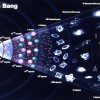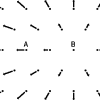Time matters to us all. We are defined by time. Mostly we don’t think about it. But it’s easier to think about than you might expect. Time became important in the 15th century. It came to be synonymous with clocks. Accurate chronometers would help sailors figure where they were at sea. Many made bold voyages—or […]
Losing Time





